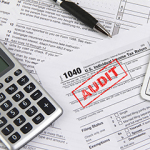May 12, 2017 | Court Rulings, Tax Planning, Tax Preparation

If you’re considering moving yourself or your business to Maine and making it your permanent home, you’ll want to make sure to establish that the new state is your place of legal residency (also known as your “domicile”) for state tax purposes. Otherwise, the old state could come after you for taxes after you’ve moved. Continue Reading »
May 10, 2017 | Court Rulings, Financial Planning, IRS Regulation, Tax Planning, Tax Preparation

Are you a passive investor who isn’t directly involved in a project’s day-to-day operations, or do you materially participate in a business or rental activity in Maine? To help individuals classify income, gains and losses from activities as passive or nonpassive, the IRS has prescribed seven tests. The passive activity loss (PAL) rules have been around Continue Reading »
May 1, 2017 | Court Rulings, IRS Regulation, Tax Planning, Tax Preparation, Valuations

Currently under the federal income tax rules, legal expenses incurred by individuals are typically not deductible. Instead, they’re most often treated as either part of the cost of acquiring an asset, such as real estate, or as personal outlays (which are nondeductible). In the acquiring asset situation, legal costs usually aren’t deductible right away; instead, they Continue Reading »
April 28, 2017 | Fraud Prevention, IRS Regulation, Tax Planning, Tax Preparation

The deadline for Maine individuals and C corporations to file their federal income tax returns for 2016 (or to file for an extension) was April 18. After all that digging and filling, you may be feeling the urge to purge. It’s important to make sure you won’t be caught empty-handed if an IRS auditor contacts Continue Reading »
April 26, 2017 | IRS Regulation, Tax Planning, Tax Preparation

If a Maine employer purchases parking spots from a vendor and then charges employees for using them — via paycheck deductions — do the employees qualify for tax-free fringe benefit treatment? The employees in one case asked the IRS for an answer to this question. The IRS has issued an Information Letter and stated the arrangement doesn’t Continue Reading »
April 24, 2017 | Court Rulings, IRS Regulation, Tax Planning, Tax Preparation

Due to depreciation write-offs and other allowable deductions, Maine real estate owners who rent their properties often incur tax losses. However, the ability to deduct those losses might be postponed indefinitely by the passive activity loss (PAL) rules. In general, these rules limit deductions for rental property PALs to the amount of income that you have Continue Reading »
April 14, 2017 | Fraud Prevention, IRS Regulation, Tax Planning, Tax Preparation

If you have an authority over or interest in a foreign financial account, then the IRS wants you to provide information about the account by filing a form called the “Report of Foreign Bank and Financial Accounts” (FBAR). The annual deadline for filing FBARs has been changed and now coincides with the tax filing deadlines Continue Reading »
April 10, 2017 | Accounting Standards, Fraud Prevention, IRS Regulation, Tax Planning, Tax Preparation

Before meeting with taxpayers and their professional representatives, IRS examiners usually do their homework. This includes reviewing any relevant Audit Techniques Guides (ATGs) that typically focus on a specific industry or audit-prone business transaction. ATGs are available to the public even though they are designed to help IRS examiners prepare for audits. So, small business Continue Reading »
April 7, 2017 | Financial Planning, IRS Regulation, Tax Planning, Tax Preparation

You must start taking mandatory annual withdrawals from your traditional IRAs once you turn age 70½. This includes any simplified employee pension (SEP) accounts and SIMPLE IRAs that you set up as a small business owner. These mandatory IRA payouts are called required minimum distributions (RMDs). And if you fail to take timely distributions there’s Continue Reading »
April 3, 2017 | Court Rulings, Deductions, Fraud Prevention, Tax Planning, Tax Preparation

Your personal losses resulting from casualties and thefts are allowed to be deducted by the tax law, within certain limits. And a “theft” for tax purposes isn’t strictly limited to house burglaries or stolen cars. However, as you will see from several U.S. Tax Court cases, the deduction can hinge on the application of state Continue Reading »